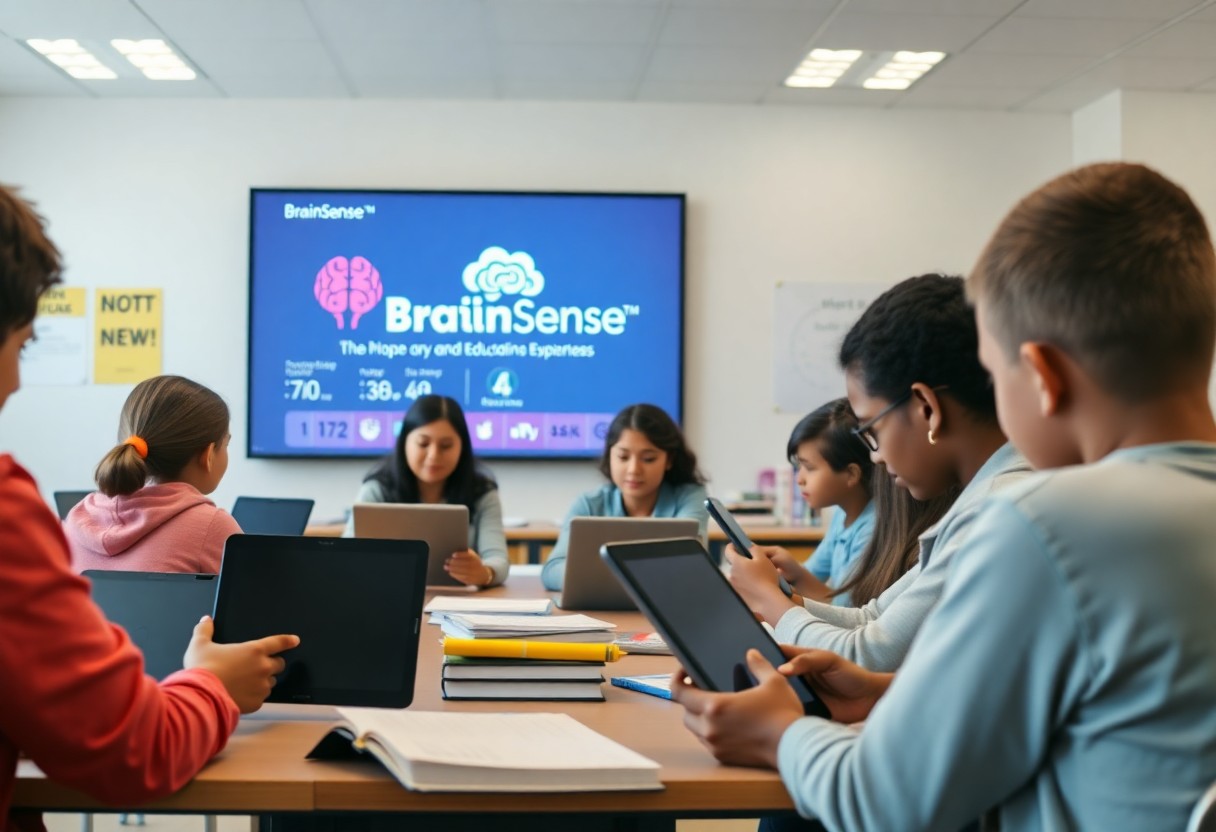AI technology has paved the way for a significant transformation in education through the introduction of chatbots. These chatbots are not only reshaping the way students receive support but also revolutionizing the process of feedback in educational settings. By exploring the impact of AI chatbots on student support and feedback, we can uncover the benefits and potential challenges that come with this innovative technology.
The Rise of AI Chatbots in Education
The Need for Efficient Student Support Systems
An efficient system for student support is crucial in the field of education. With the increasing demands on teachers and limited resources available, students often struggle to get the help and feedback they need in a timely manner. This can lead to frustration, disengagement, and ultimately, poor academic performance. Traditional office hours and email correspondence are no longer sufficient in today’s fast-paced educational environment where instant gratification is the norm.
The Emergence of AI-Powered Chatbots as a Solution
To address the growing need for efficient student support, AI-powered chatbots have emerged as a revolutionary solution in education. These smart bots are equipped with natural language processing capabilities that allow them to engage in conversations with students, provide instant answers to queries, and even offer personalized feedback. By leveraging machine learning algorithms, AI chatbots continuously improve their responses based on interactions, making them increasingly effective over time.
It’s important to note that AI chatbots are not meant to replace human educators but to complement their efforts by efficiently handling routine tasks such as answering frequently asked questions, providing resources, and guiding students through processes. This frees up valuable time for educators to focus on more complex and high-value interactions with students.

Personalized Learning Experiences
There’s a significant shift happening in education thanks to AI chatbots, and one area where this revolution is making a profound impact is in personalized learning experiences. By leveraging AI technology, chatbots are able to cater to individual learning needs like never before.
How Chatbots Can Cater to Individual Learning Needs
Any student will tell you that people learn in different ways and at different paces. This is where AI chatbots shine, as they can adapt to the unique learning styles of each student. Whether a student learns best through visuals, auditory cues, or hands-on activities, chatbots can tailor their interactions to provide a personalized learning experience. This level of customization ensures that students receive the support they need to succeed, ultimately leading to better outcomes.
The Role of AI in Identifying Knowledge Gaps
Role of AI in Identifying Knowledge Gaps
Knowledge gaps can hinder a student’s learning progress without them or their educator even realizing it. This is where AI steps in, playing a crucial role in identifying these gaps by analyzing student data and performance. AI chatbots can pinpoint areas where students are struggling, allowing for targeted interventions and support to bridge those gaps and ensure comprehensive understanding of the material.
Real-Time Feedback and Assessment
The Importance of Timely Feedback in Student Progress
For students, timely feedback is crucial for their academic development. It allows them to continuously track their progress, understand their strengths and weaknesses, and improve in real-time. Without timely feedback, students may struggle to identify areas in which they need to focus, leading to a lack of improvement and potentially hindering their academic performance.
Chatbots as Automated Graders and Evaluators
Evaluators, such as AI chatbots, play a vital role in providing automated grading and evaluation of student work. AI chatbots can quickly assess assignments, quizzes, or exams, providing students with instantaneous feedback on their performance. This allows students to identify mistakes immediately and take corrective action, ultimately enhancing their learning outcomes.
Assessment through chatbots not only saves educators’ time but also ensures consistency in grading, eliminating potential bias. Moreover, AI chatbots can offer personalized feedback tailored to each student’s needs, promoting individualized learning in a scalable manner.
Enhanced Student Engagement
After recognizing the potential impact of AI chatbots in education, it is evident that student engagement is significantly enhanced through their use. By leveraging AI technology, educational institutions can provide students with a more personalized learning experience that caters to their individual needs and preferences.
Chatbots as Virtual Learning Companions
To elevate student engagement, chatbots are being utilized as virtual learning companions. These AI-powered tools are available 24/7 to assist students with queries, provide timely feedback on assignments, and even offer study tips and resources. By having a virtual companion by their side, students feel supported and encouraged throughout their learning journey, leading to increased motivation and engagement with course materials.
Encouraging Active Participation and Discussion
Active participation and discussion are crucial components of a vibrant learning environment. AI chatbots play a crucial role in facilitating this by initiating discussions, posing questions, and prompting students to express their thoughts and opinions. With the ability to engage students in interactive dialogues, chatbots foster collaboration and critical thinking skills, creating a more dynamic and engaging educational experience.
Another key aspect of chatbots in encouraging active participation and discussion is their capacity to provide instant feedback on student responses. This real-time assessment enables educators to gauge student comprehension levels, address misconceptions promptly, and tailor their teaching strategies to meet the diverse learning needs of their students.
Accessibility and Inclusivity
Reaching Students with Disabilities and Language Barriers
Disabilities are no longer a barrier to educational support with the rise of AI chatbots. These advanced technologies can provide personalized assistance to students with disabilities, ensuring they have equal access to education. Chatbots can offer real-time assistance, tailored to individual needs, such as providing text-to-speech functions for students with visual impairments or offering simplified language options for those with cognitive disabilities. Additionally, language barriers are effortlessly bridged as chatbots can communicate in multiple languages, making education more accessible to a diverse student population.
Chatbots as Cultural Ambassadors in Education
The integration of AI chatbots in education goes beyond just providing academic support. Chatbots serve as cultural ambassadors, helping students from various backgrounds feel included and represented in the learning environment. By offering culturally sensitive responses and sharing information about different cultures, chatbots foster a sense of belonging and promote diversity awareness among students.
AI chatbots can introduce students to different viewpoints, traditions, and customs, enriching their educational experience and preparing them to thrive in a globalized world. In this way, chatbots play a crucial role in promoting inclusivity and fostering a welcoming and supportive educational community for all students.
Teacher Workload Reduction
Automating Administrative Tasks and Freeing Up Instructor Time
For teachers, time is a precious commodity. AI chatbots are proving to be invaluable in reducing the administrative burden on educators. These intelligent bots can handle routine tasks such as answering basic student queries, providing course information, and even grading simple assignments. By automating these administrative duties, AI chatbots free up instructors’ time to focus on more important aspects of teaching and learning.
Focusing on High-Touch, High-Impact Teaching
When AI chatbots take over tedious administrative tasks, teachers can devote more energy to high-touch, high-impact teaching activities. Instead of getting bogged down in paperwork and administrative details, educators can spend more time engaging with students, providing personalized support, and creating impactful learning experiences. This shift allows instructors to make a more profound and positive impact on student learning outcomes.
Plus, by leveraging AI chatbots to streamline administrative processes, teachers can create a more efficient and effective learning environment. This not only benefits instructors but also enhances the overall educational experience for students, leading to improved academic performance and student satisfaction.
Data-Driven Insights and Analytics
Chatbots as Data Collectors and Analyzers
Not only do AI chatbots provide immediate support to students, but they also serve as powerful data collectors and analyzers in an educational setting. With the ability to track and analyze every interaction, chatbots can generate valuable insights into students’ needs, behaviors, and preferences. This data can be used to identify trends, patterns, and areas where students may be struggling, allowing educators to tailor their support more effectively.
Informing Instructional Design and Curriculum Development
An AI-powered chatbot can offer educators a wealth of data that can be utilized to enhance instructional design and curriculum development processes. Understanding how students engage with the chatbot can provide insights into which topics they find challenging, where they may need additional resources or support, and how they prefer to receive information. By analyzing this data, educators can make informed decisions on how to optimize their teaching methods, curriculum, and learning materials to better meet the needs of their students.
Student Data Privacy and Security
The Importance of Safeguarding Sensitive Information
The protection of student data privacy and security is of paramount importance in the education sector. Student information such as academic records, personal details, and communication logs are highly sensitive and must be safeguarded to prevent any breaches that could compromise students’ privacy and trust. Various regulations like the Family Educational Rights and Privacy Act (FERPA) in the United States enforce the confidentiality of student records and highlight the significance of data protection in educational institutions.
Implementing Robust Security Measures in AI Chatbots
Importance of incorporating stringent security protocols within AI chatbots cannot be underestimated. Encrypting data transmission, using secure servers for storage, and implementing multi-factor authentication are necessary measures to ensure the safety of student information. Additionally, regular security audits and updates to identify and address vulnerabilities in the system are crucial in maintaining data integrity and building trust with students and educational stakeholders.
Security breaches in AI chatbots can have severe consequences such as unauthorized access to sensitive information, data manipulation, or even identity theft. Therefore, it is imperative for educational institutions to prioritize security in the development and deployment of AI chatbots to protect student data and uphold their commitment to privacy and confidentiality.
Integration with Existing Educational Platforms
Once again, AI chatbots prove their value by seamlessly integrating with existing educational platforms. This integration allows for a more cohesive experience for both students and educators, as AI chatbots can easily access and provide support within the learning management systems already in place.
Seamless Integration with Learning Management Systems
For educational institutions using learning management systems like Moodle or Canvas, AI chatbots can be integrated to provide immediate assistance to students. These chatbots can answer common questions, offer resources, and even provide personalized feedback based on student interactions. This streamlined approach not only enhances student support but also lightens the workload for educators, allowing them to focus on more complex tasks.
Expanding the Reach of AI Chatbots in Education
Any educational institution, regardless of size or location, can benefit from the implementation of AI chatbots. These virtual assistants have the potential to reach a wide audience of students, providing support and feedback around the clock. With AI chatbots, students can access help whenever they need it, fostering a culture of continuous learning and improvement.
To further enhance the reach of AI chatbots in education, institutions can customize these tools to cater to specific student needs. Whether it’s offering language support, academic resources, or career guidance, AI chatbots can be tailored to provide personalized assistance, creating a more inclusive and supportive learning environment.
Addressing Concerns and Misconceptions
Debunking Myths about AI in Education
Many misconceptions surround the use of AI in education, with some fearing that it will replace teachers entirely. However, this couldn’t be further from the truth. AI chatbots are designed to support educators and students, rather than replace them. These tools can enhance the learning experience by providing instant support, personalized feedback, and freeing up teachers to focus on more complex tasks.
Mitigating the Risk of Job Replacement
Education is about equipping students with the skills they need to thrive in an increasingly digital world. While AI chatbots may automate certain tasks, they also create opportunities for educators to engage with students on a deeper level. By leveraging AI chatbots for routine tasks like answering FAQs or providing feedback on assignments, teachers can allocate more time to mentorship, individual support, and fostering critical thinking skills.
Myths surrounding AI often lead to the misconception that technology will replace human jobs. However, in the context of education, AI chatbots should be seen as valuable tools that complement the role of teachers rather than replace them entirely. By focusing on the collaborative potential of AI and educators, we can create a more efficient and effective learning environment for students.
The Future of AI Chatbots in Education
Emerging Trends and Innovations
To keep pace with the ever-evolving landscape of technology, emerging trends and innovations in AI chatbots for education are continuously being developed. Personalization and adaptability are at the forefront, where chatbots can tailor their responses based on individual student needs and learning styles. Moreover, integrating emotional intelligence into these chatbots is becoming a priority to enhance the student experience.
Predictions for Widespread Adoption
To meet the growing demands for personalized education and streamlined support systems, predictions for widespread adoption of AI chatbots in education are on the rise. With advancements in natural language processing and machine learning, these chatbots are becoming more sophisticated in understanding and engaging with students. Universities and educational institutions are increasingly recognizing the potential benefits and cost-effectiveness of integrating AI chatbots into their systems.
Innovations in AI chatbots will pave the way for more efficient and effective student support systems. As these chatbots become more adept at understanding and responding to student queries, the quality of education can be enhanced. Additionally, the scalability of AI chatbots allows for 24/7 support, ensuring students receive assistance whenever they need it.
Best Practices for Implementing AI Chatbots
Strategies for Successful Integration
Now, when implementing AI chatbots in educational settings, it is important to have a clear strategy for successful integration. Firstly, it’s crucial to identify the specific needs and goals the chatbot will address. Understanding the pain points of students and staff will help tailor the chatbot to provide relevant support and feedback. Additionally, taking the time to train both users and administrators on how to interact with the chatbot effectively is key to maximizing its benefits.
Overcoming Common Challenges and Obstacles
Overcoming common challenges and obstacles when implementing AI chatbots is crucial to ensuring their success in education. For many institutions, resistance to change and fear of job automation can hinder the adoption of chatbot technology. However, with proper communication and training, these concerns can be addressed and individuals can see the value that chatbots bring in enhancing student support and feedback.
With the right approach, AI chatbots have the potential to revolutionize student support and feedback systems in education, providing personalized assistance and valuable insights to improve learning outcomes.
Collaboration and Interdisciplinary Approaches
Fostering Partnerships between Educators, Developers, and Researchers
Keep in mind that the success of AI chatbots in education largely depends on the collaboration between educators, developers, and researchers. By working together, educators can provide valuable insights into the specific needs and challenges students face, developers can turn these insights into innovative chatbot solutions, and researchers can evaluate the effectiveness of these tools in real-world educational settings.
Encouraging Cross-Disciplinary Innovation
For a truly impactful integration of AI chatbots in education, encouraging cross-disciplinary innovation is important. Bringing together experts from various fields such as education, psychology, computer science, and human-computer interaction can lead to the development of chatbots that not only provide academic support but also cater to the social and emotional well-being of students. This holistic approach can revolutionize student support and feedback mechanisms in educational settings.
Innovation in AI chatbots for education can involve incorporating features like personalized learning paths based on student preferences and performance, real-time feedback on assignments and assessments, and even virtual tutoring capabilities. By harnessing the power of AI and interdisciplinary collaboration, educators can create a more adaptive and engaging learning environment for students, ultimately enhancing their academic outcomes and overall learning experience.
1. Enhancing student support with 24/7 availability.
2. Providing instant feedback to students on their progress.
3. Personalizing learning experiences and support for students.
4. Simplifying administrative tasks for educators.
5. Increasing student engagement and motivation.
6. Improving overall learning outcomes and retention rates.
Final Words
With these considerations, it is clear that AI chatbots are significantly revolutionizing student support and feedback in education. By leveraging sophisticated algorithms and natural language processing capabilities, chatbots can provide instant assistance to students, offer personalized feedback, and streamline administrative tasks for educators. With the potential to improve student engagement, academic performance, and overall learning outcomes, AI chatbots are poised to transform the educational landscape in profound ways.
As technology continues to evolve and integrate into educational settings, the role of AI chatbots will only grow in importance. Educators and institutions that embrace these advancements stand to benefit from enhanced efficiency, scalability, and personalized learning experiences for students. By harnessing the power of AI, education can become more accessible, engaging, and effective, ultimately paving the way for a brighter future for students worldwide.
FAQ
Q: What are AI chatbots in education?
A: AI chatbots in education are computer programs designed to simulate conversation with human users, providing automated responses and assistance tailored to support and interact with students in their educational journey.
Q: How do AI chatbots revolutionize student support?
A: AI chatbots revolutionize student support by offering immediate responses to student queries, providing personalized assistance, offering 24/7 availability, and enabling efficient communication channels between students and educational institutions.
Q: What role do AI chatbots play in student feedback?
A: AI chatbots play a crucial role in student feedback by collecting and analyzing data from students, providing real-time feedback on assignments and coursework, offering insights into student performance, and facilitating continuous improvement in the educational process.
Q: How do AI chatbots enhance student learning experiences?
A: AI chatbots enhance student learning experiences by offering interactive and engaging learning opportunities, providing personalized recommendations for study materials, offering instant feedback on assessments, and creating a supportive learning environment that adapts to individual student needs.
Q: Can AI chatbots replace human instructors in education?
A: AI chatbots cannot replace human instructors in education but can supplement their role by providing additional support, personalized assistance, and automated feedback processes, allowing educators to focus on more complex tasks such as critical thinking, mentorship, and guidance.
Q: What are the benefits of using AI chatbots in education?
A: The benefits of using AI chatbots in education include improved student engagement, personalized learning experiences, faster response times to student queries, enhanced feedback mechanisms, data-driven insights for educators, and overall efficiency in student support processes.
Q: Are there any limitations to the use of AI chatbots in education?
A: Some limitations to the use of AI chatbots in education include potential errors in responses due to limitations in natural language processing, the lack of emotional intelligence compared to human interactions, concerns about data privacy and security, and the need for ongoing monitoring and fine-tuning to ensure optimal performance.




